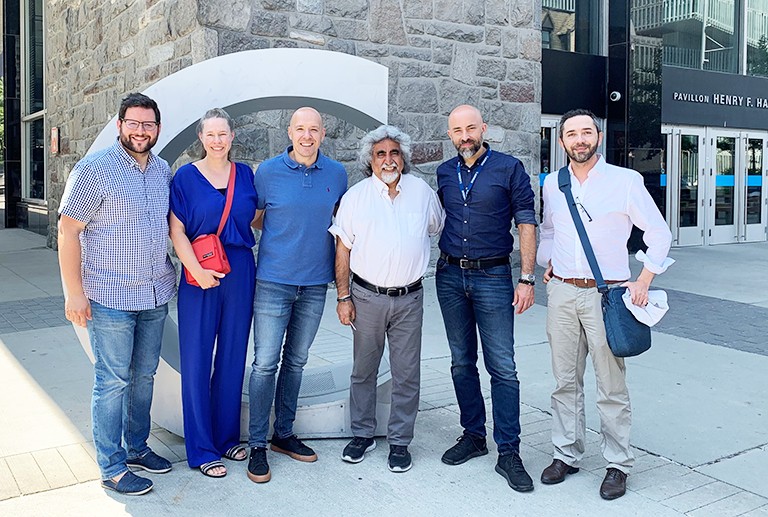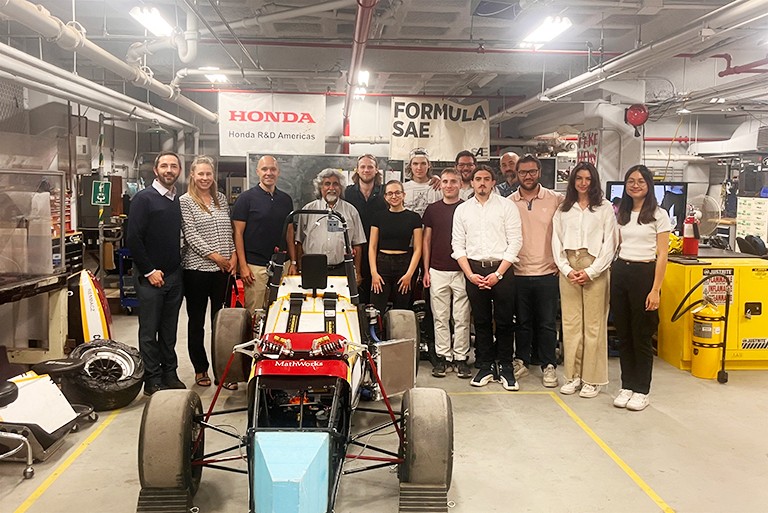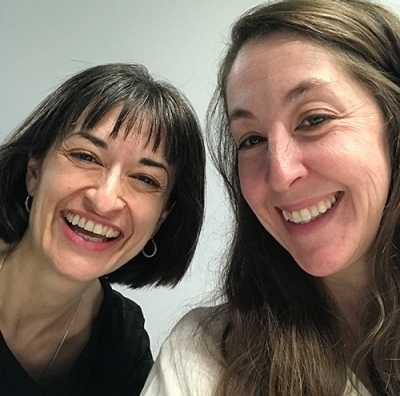Concordia’s Moire Stevenson, the lead for disability accommodations at the Access Centre for Students with Disabilities, headed to the Escuela Universitaria de Artes TAI Madrid, an arts-focused university, for one week in May.
Her duties at the university include supporting students who need accommodations or other accessibility services and leading workshops for students.
Stevenson was hosted by Mara Blanco, head of the Student Support and Welfare Unit at TAI Madrid. Blanco’s role involves listening to student complaints, advocating on behalf of students and bringing issues to the attention of senior administration. She visited Concordia as well for one week in June.
Stevenson and Blanco noticed many differences between their institutions and brought back ideas they’d like to implement at their home institutions.
“I think the biggest difference is that Mara’s team works much more with the parents and the families than our team does,” says Stevenson. “We are more specific to students. We will work with parents, but the student is the key person, and the parent can join in if they want.”
Blanco was fascinated to see that students at Concordia have access to extensive mental-health services, noting that in Spain mental-health support in higher education is rare and that students tend to be less willing to seek out support services due to stigma. She was also inspired by Concordia’s Zen Dens and peer support service and hopes to create something similar at TAI.
Different continents, similar issues
Blanco adds that she was also comforted to see that Concordia and TAI are dealing with many of the same issues related to mental health and learning disabilities. “Sometimes when you belong to a small country like Spain, you lose perspective,” she says.
“You think what happens to your institution only happens to you. Going abroad and being in touch with an institution in a different country, on a different continent, in a different culture, you begin to understand that these are international issues.”
Kaushal, Corral, Blanco and Stevenson all hope to have more exchanges in the future and continue to learn from other universities.
“I would say mobilities are food for the brain and the spirit,” Blanco says. “It’s like wearing new glasses to see things that you could not otherwise.”
Many participants
Other Concordians also participated in this year’s Erasmus+ mobilities. Lindsay Rodgers, advisor on knowledge mobilization at the Applied AI Institute, visited the University of the Basque Country. Marta Samuel, manager of publications and projects at Advancement Communications, visited the Escuela Universitaria de Artes TAI Madrid.
In addition, Rebecca Tittler, lecturer in the Department of Biology and Department of Geography, Planning and Environment, along with other members from the Loyola College for Diversity and Sustainability and Loyola Sustainability Research Centre, hosted Iker Etxano, associate professor in the Department of Applied Economics from the University of the Basque Country.
Caroline D’Amour, director of web communications, hosted Gonzalo Ovejero, head of web platform from the Escuela Universitaria de Artes TAI Madrid. Véronique Pepin, professor in the Department of Health, Kinesiology and Applied Physiology, hosted Sara Maldonado, professor in the Department of Physical Education and Sport from the University of the Basque Country.
The administrative support and visit scheduling for all the Erasmus+ mobilities was organized by Nuria Arregi Guridi, international projects officer from the University of the Basque Country; Natalia Inés González, institutional coordinator from the Escuela Universitaria de Artes TAI Madrid; Pauliina Rouleau, international liaison officer at Concordia International; and Julio Sevilla, international projects manager at Concordia International.
Learn more about staff mobility opportunities with Concordia International.


 From left: Michael Rembacz, Pauliina Rouleau, Javier Corral, Ashok Kaushal, Amir Jalini and Julio Sevilla all participated in or helped facilitate staff mobility opportunities offered through the Erasmus+ program.
From left: Michael Rembacz, Pauliina Rouleau, Javier Corral, Ashok Kaushal, Amir Jalini and Julio Sevilla all participated in or helped facilitate staff mobility opportunities offered through the Erasmus+ program.
 Javier Corral heard presentations from Concordia’s student-run SAE chapter and Space Concordia.
Javier Corral heard presentations from Concordia’s student-run SAE chapter and Space Concordia.
 Mara Blanco, from the Escuela Universitaria de Artes TAI Madrid, and Concordia’s Moire Stevenson travelled to Madrid and Montreal to exchange best practices.
Mara Blanco, from the Escuela Universitaria de Artes TAI Madrid, and Concordia’s Moire Stevenson travelled to Madrid and Montreal to exchange best practices.


